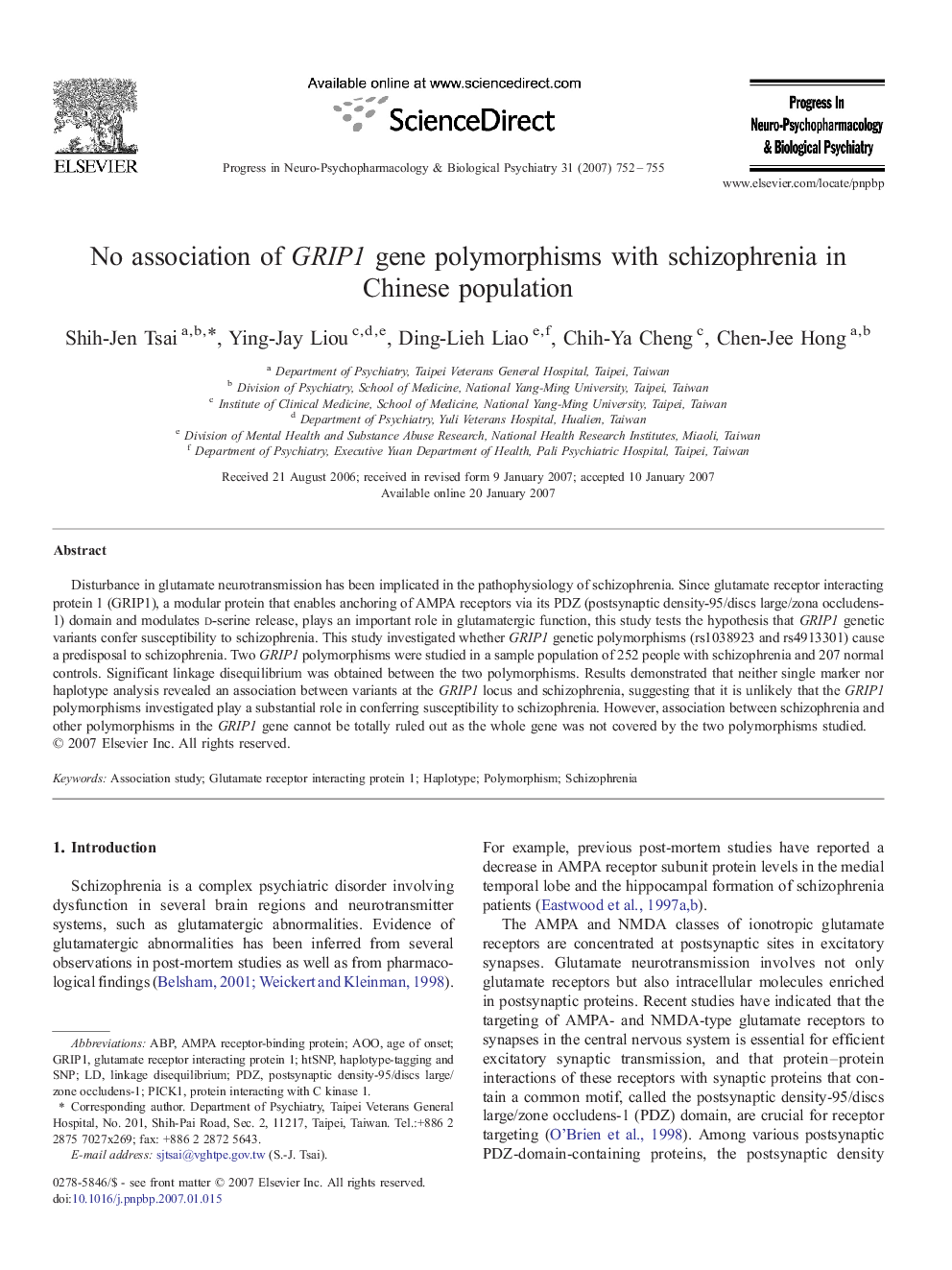| Article ID | Journal | Published Year | Pages | File Type |
|---|---|---|---|---|
| 2566337 | Progress in Neuro-Psychopharmacology and Biological Psychiatry | 2007 | 4 Pages |
Disturbance in glutamate neurotransmission has been implicated in the pathophysiology of schizophrenia. Since glutamate receptor interacting protein 1 (GRIP1), a modular protein that enables anchoring of AMPA receptors via its PDZ (postsynaptic density-95/discs large/zona occludens-1) domain and modulates d-serine release, plays an important role in glutamatergic function, this study tests the hypothesis that GRIP1 genetic variants confer susceptibility to schizophrenia. This study investigated whether GRIP1 genetic polymorphisms (rs1038923 and rs4913301) cause a predisposal to schizophrenia. Two GRIP1 polymorphisms were studied in a sample population of 252 people with schizophrenia and 207 normal controls. Significant linkage disequilibrium was obtained between the two polymorphisms. Results demonstrated that neither single marker nor haplotype analysis revealed an association between variants at the GRIP1 locus and schizophrenia, suggesting that it is unlikely that the GRIP1 polymorphisms investigated play a substantial role in conferring susceptibility to schizophrenia. However, association between schizophrenia and other polymorphisms in the GRIP1 gene cannot be totally ruled out as the whole gene was not covered by the two polymorphisms studied.
